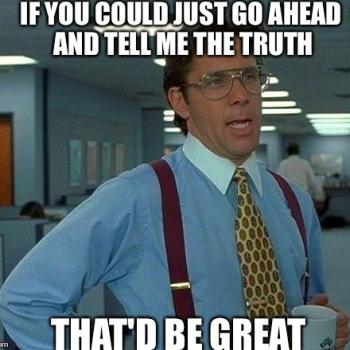Jeanne was away for most of the last ten days with her sister in Brooklyn who is dealing with some serious medical issues. Finding myself alone with Bovina in the summer is different. During the school year I always have work piling up, classes to prepare for, meetings to attend, and grading to do. But my courses for the fall are already set to go, I just finished going through the draft of my next book one more time, and my eyes can only handle so many hours per day of catching up on the various mystery series of books that I’ve fallen behind on. Other than a couple hours per day on the bicycle (just short of 200 miles in the eight days Jeanne was gone), throwing the ball in the backyard for Bovina, and having an occasional 🙂 beer, what to do?
The answer was “clean the house.” Jeanne and I spent a few days in June deep cleaning our wood floors (not a carpet in the house—strongly advised for people with dogs), but the place was screaming for cleaning from the floorboards up. So I did some of that.  Part of cleaning in our house is removing the hundreds of books that are threatening to take the establishment from their shelves, dusting them, washing the shelves, reshelving the tomes, and perhaps choosing a few to give away. I’ve managed for a while to live by a self-imposed rule in my office with has four bookcases bulging with academic tomes that for every book I procure I will give one away, but have not managed to live by that at home yet. It’s like giving one’s children away.
Part of cleaning in our house is removing the hundreds of books that are threatening to take the establishment from their shelves, dusting them, washing the shelves, reshelving the tomes, and perhaps choosing a few to give away. I’ve managed for a while to live by a self-imposed rule in my office with has four bookcases bulging with academic tomes that for every book I procure I will give one away, but have not managed to live by that at home yet. It’s like giving one’s children away.
But this time I realized that I had duplicate copies of a few books, usually because Jeanne and I purchased them separately or a friend gave us a copy after we had already purchased one. One of these duplicate books really hit me hard when I read it a couple of years ago—its relevance is even more pressing now than when it was published in 2023.
There is a reason why the second of ten commandments in the Pentateuch is a prohibition against idolatry. According to John Calvin, the human heart is a “perpetual factory of idols.” Human beings are hard-wired for worship; even those who do not believe in a higher power are happy to turn athletes, celebrities, politicians, or anyone or anything that inspires awe into an idol. This tendency does not go away among those who claim to believe in and worship God; rather, the idol-making tendency becomes even more problematic because the idol often, either implicitly or explicitly, takes the place of the deity that the person supposedly worships. Consider the story of the golden calf from Exodus, for instance. Consider the massive support that Donald Trump continues to enjoy from professed evangelical Christians, for another instance.
Tim Alberta’s The Kingdom, the Power, and the Glory is a magisterial investigation of evangelical Christianity in America. Alberta is a professing evangelical Christian with deep roots in the faith. He grew up as a preacher’s kid and maintains his commitment to conservative Protestantism while at the same time is appalled by how millions of his fellow Christians have twisted and morphed their faith into what his book’s flyleaf describes as
A faith cheapened by ephemeral fear, a promise corrupted by partisan subterfuge, and a reputation stained by perpetual scandal . . . the author documents a growing fracture inside American Christianity and journeys with readers through this strange new environment in which loving your enemies is “woke’” and owning the libs is the answer to WWJD [“What Would Jesus Do?].
I also was born into and raised in an evangelical Protestant world as a preacher’s kid, so after hearing Alberta interviewed on a couple of podcasts, I decided to read his book over the following Christmas break. It’s a good thing that Alberta is a terrific writer, because his 450-page book tells a sad, depressing, and infuriating story—a story that badly needs telling. Chapter after chapter digs deep into various scandals plaguing churches and congregations across the country, scandals that more often than not have come to light only after years of concerted efforts to keep them from going public. Toward the end of his book, Alberta notes that when in late 2022 Christianity Today—the flagship evangelical publication founded by Billy Graham in the 1950s—recapped its twenty most-read stories of the year and fifteen of them focused on scandals that had plagued various pastors and congregations, one evangelical author wondered if “CT is making a killing by killing trust in the church.”
“A faith cheapened by fear.” Over and over again during the past years as our nation has become more politically divided and claims of Christian faith have become a thin veneer over self-righteousness, judgment, and anger, I am reminded of something one of my favorite 20th century philosophers and novelists wrote about fear. Given that fear almost always is behind the worst of human behavior, her insights are worth considering.
Iris Murdoch claimed to be an atheist, but she also believed that true moral commitment requires belief in something greater than us, something transcendent, not subject to the vagaries and whims of human existence. In the midst of exploring these matters in her philosophical essays and her novels, she crafted several memorable definitions of basic moral concepts. One of my favorites is her definition of “freedom.”
Our contemporary understanding of “freedom” often amounts to “doing whatever I want to do.” Murdoch’s view of freedom was far more complex. “To be free,” she wrote, “is something like this: To live sanely without fear, and to perceive what is real.” Sanity. Fearlessness. Reality. These are the elements of being truly free. Murdoch once said in an interview that one of the best questions one can ask oneself is: “What are you afraid of?” If facing and overcoming fear is part of being free, then identifying one’s fears is crucial.
What exactly are we afraid of? Being free requires not only facing our fears, but also sanely inhabiting a new, clearer reality. Naming our demons requires taking responsibility for what comes afterwards—a radical reshaping of everything we think, say, and do. It might be a lot easier just to hang on to our demons and fears. Unless, of course, we actually want to be free.












